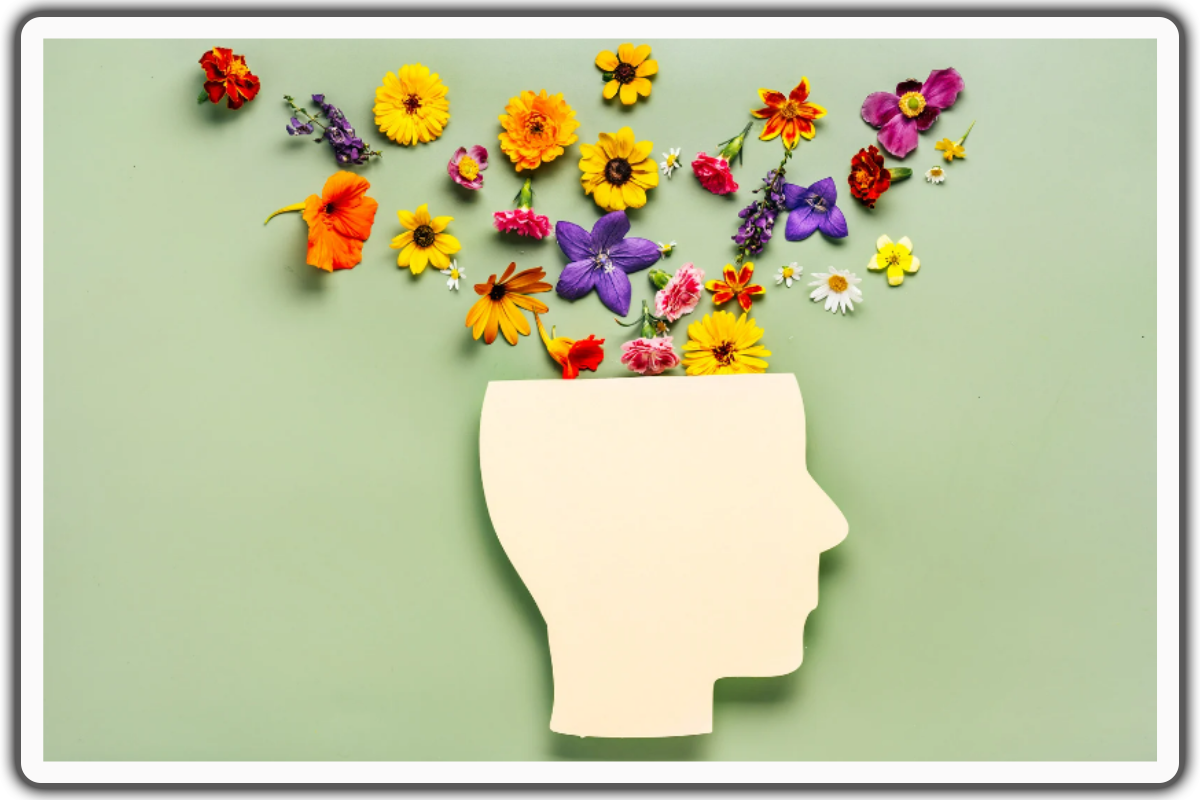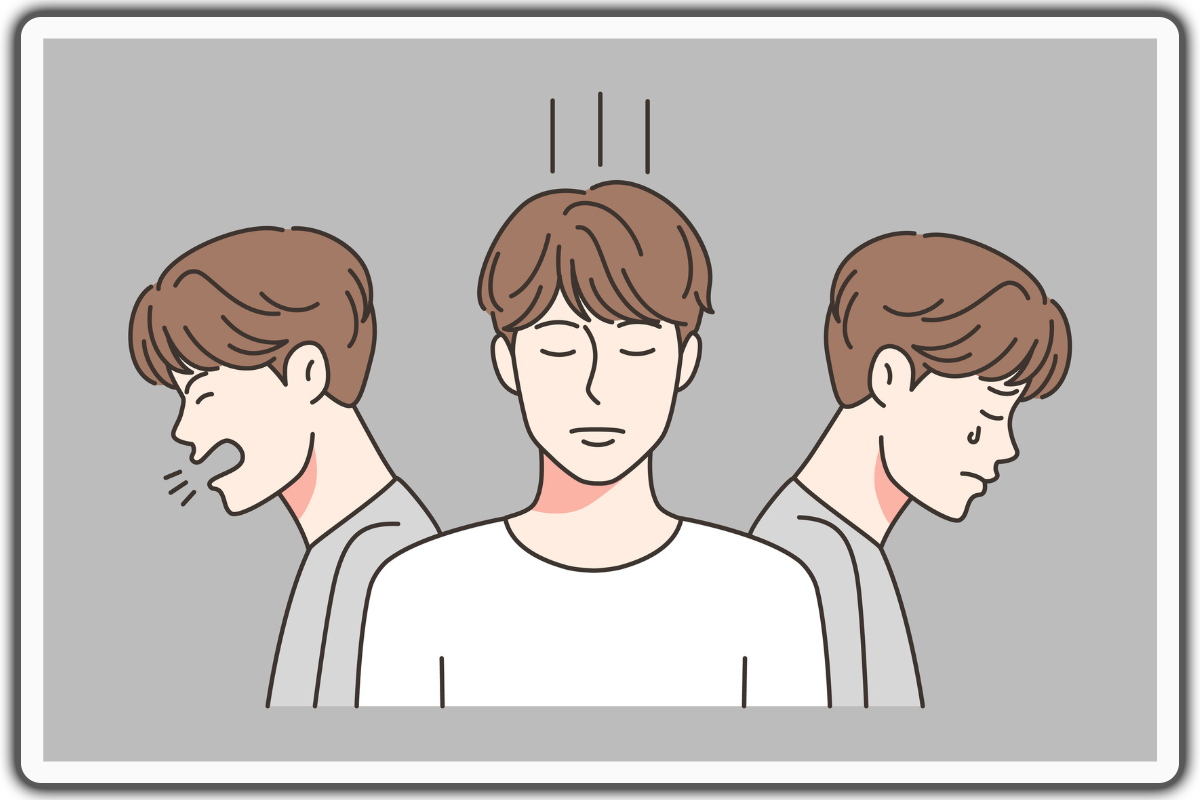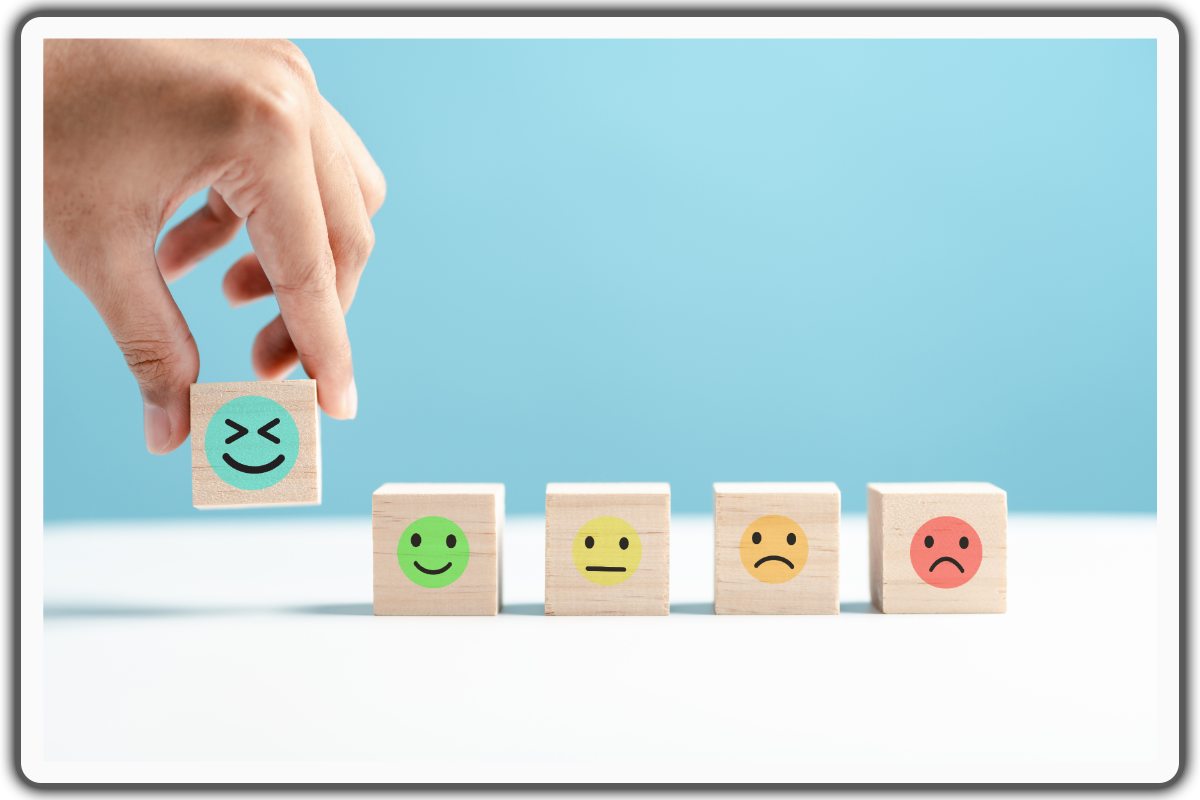Mental Health Matters: 5 Ways To Foster Optimal Mental Health

"MENTAL HEALTH MATTERS"
We hear and often read this impactful phrase. But to no surprise, we, ourselves, can't even definitely claim if we truly take action to help our mental health thrive.
Well, we can't be blamed. "Mental Health" as a term is broad and often unfamiliar, especially to older generations.
Or worse, many are totally oblivious to its existence as a huge portion of our health.
The American Psychological Association (APA) defines mental health as a state of emotional stability, proper behavior management, minimal anxiety, and the ability to form positive relationships and handle daily pressures.
The complexity of mental health, encompassing emotional, psychological, and social well-being, often leads to a lack of understanding.
Influenced by genetic, biological, environmental, and lifestyle factors, mental health affects our thoughts, emotions, and behaviors. This complexity means there is no universal approach to understanding or treating mental health issues.
This article aims to clarify this concept and provide five universal ways to show that your mental health matters.
Rethinking "Mind Over Matter"

Do you often say or hear the phrase "mind over matter"?
If yes, does this mean that you believe that mental strength, willpower, and determination can help anyone achieve goals, endure hardships, or perform tasks that seem impossible due to physical limits?
While this is not wrong, your belief that the mind can overcome anything might already be misplaced.
In the context of mental health challenges, it's important to recognize that while mental strength is valuable, it is not a cure-all.
Mental health disorders such as depression, post-traumatic stress disorder, anxiety disorders, and bipolar disorders involve complex interactions of biological, psychological, and social factors. These conditions are not simply a matter of willpower and cannot be overcome solely through determination.
To give you a more specific example. Let's take depression for example. Depression is a widespread and severe health condition that adversely impacts your emotions, thoughts, and actions. It manifests as persistent sadness and a diminished interest in previously enjoyed pursuits. This condition can give rise to numerous emotional and physical issues, impairing an individual's capacity to perform effectively both professionally and domestically.
However, depression extends beyond mere "bout of the blues." It is not a weakness, nor is it something that one can simply "snap out of." Depression is actually linked to an imbalance of neurotransmitters in the brain, particularly serotonin, norepinephrine, and dopamine. Moreover, research has revealed that the hippocampus, a part of the brain that is involved in memory and emotion regulation, is often smaller in individuals with depression.
These biological factors prove that mental health disorders are inequitable to what is believed to be "mind over matter."
Professional support, such as therapy, medication, and a strong support system, is often necessary to manage and treat these conditions effectively.
Moreover, the "mind over matter" mindset can sometimes contribute to stigma and misunderstanding about mental health. It can lead to the erroneous belief that those struggling with mental health issues are simply not trying hard enough, which can discourage individuals from seeking help and exacerbate feelings of shame and isolation.
Understanding that mental health challenges are real, multifaceted conditions requiring comprehensive care is crucial for fostering a supportive and empathetic approach to mental health.
How Healthy Should Mind Be?

Since we already learned that mental health challenges are not just a "mind over matter" sense. We are now able to recognize that mental health care really does matter. But how healthy could we make our minds be?
A healthy mind is crucial for overall well-being and can significantly enhance various aspects of life. To assess what status of mental health in our minds, let's look at what normal mental health experiences and what could be signs of a mental health concern:
What Is Normal and Not Normal?
Normal Mental Health Experiences:
- Feeling sad or down occasionally, especially after a stressful event.
- Experiencing anxiety before significant events like exams or presentations.
- Having mood fluctuations that are not extreme and do not last long.
Sometimes feeling overwhelmed but finding ways to manage and cope.
Signs of Potential Mental Health Issues:
- Persistent sadness or feelings of hopelessness that last for weeks or longer.
- Excessive anxiety or worry that interferes with daily activities.
- Extreme mood swings that affect relationships and daily functioning.
- Withdrawal from social activities and loss of interest in previously enjoyed activities.
- Changes in appetite or sleep patterns without a clear physical cause.
- Difficulty concentrating, making decisions, or remembering things.
- Physical symptoms include unexplained aches and pains that do not have a medical basis.
Practical Benefits of Having a Healthy Mind
- Enhanced Emotional Resilience: A healthy mind enables you to cope with stress, bounce back from setbacks, and handle life's challenges more effectively.
- Improved Relationships: Mental well-being fosters better communication, empathy, and understanding in relationships, leading to stronger connections with others.
- Increased Productivity: Good mental health can boost focus, creativity, and productivity, contributing to success in both personal and professional endeavors.
- Better Physical Health: Mental health is closely linked to physical health. A healthy mind can reduce the risk of chronic illnesses, improve sleep quality, and enhance overall physical well-being.
- Greater Life Satisfaction: Mental well-being contributes to a more positive outlook on life, increased happiness, and a sense of fulfillment.
5 Ways To Foster Optimal Mental Health

1. Enrich Social Support
Foster deep, meaningful connections with your family, friends, and community because your social support network is crucial for your mental health. Imagine how enriching it feels to make time for regular social activities, where laughter and shared experiences create lasting memories.
Communicate openly with those you care about, letting them know your thoughts and feelings, and listen actively when they share with you. Offer your support when they need it, and don’t hesitate to lean on them when you do.
By building a network of supportive relationships, you can find comfort in knowing you’re not alone, gain new perspectives on your challenges, and feel a true sense of belonging. Your connections can become a source of strength, joy, and resilience, enhancing your overall well-being.
2. Seek Purpose and Practice Gratitude
Find and pursue activities that give your life meaning and purpose. Dive into work that excites you, explore hobbies that spark joy, volunteer for causes you care about, or indulge in creative pursuits that fuel your passion. Practicing gratitude can profoundly enhance your well-being. By regularly reflecting on what you are thankful for, you can shift your focus from what’s missing to the abundance already in your life.
Keep a gratitude journal or simply take a moment each day to acknowledge and appreciate the positive aspects around you. This practice can transform your outlook, helping you savor the present and cultivate a deeper sense of contentment. Embrace this journey of finding purpose and gratitude, and watch how it enriches your overall health.
3. Recognize Your Emotions

Recognizing your emotions is essential for emotional well-being and mental clarity. Positive and negative emotions offer valuable insights into your inner world and interactions with your environment. Here's how to effectively recognize and understand your emotions:
- Pause and Reflect: Take a moment to pause and tune into your feelings. Create a quiet space in your mind to observe your emotions without judgment. Identify what you're feeling and why—whether it's anxiety, joy, frustration, or contentment.
- Name Your Emotions: Accurately label your emotions. Instead of saying, "I feel bad," specify whether you're sad, angry, or anxious. Naming your emotions reduces their intensity and makes them easier to manage.
- Understand the Source: Identify the trigger for your emotions. Did something specific happen today? Are you reacting to a memory or expectation? Understanding the source provides clarity and helps address the root cause.
- Accept Your Emotions: Accept your emotions without suppressing or ignoring them. All emotions are valid and serve a purpose. Acceptance allows you to fully experience and move through your feelings.
- Express Your Emotions: Find positive methods to channel your feelings. Confide in a companion, document your thoughts in a diary, or immerse yourself in artistic pursuits such as painting or playing an instrument. Expressing emotions releases pent-up feelings and provides perspective.
- Reflect on Patterns: Notice patterns in your emotional responses. Are there situations or thoughts that consistently trigger specific emotions? Recognizing these patterns helps you anticipate and prepare for emotional responses, and develop healthier coping mechanisms.
4. Break the Stigma
Breaking the stigma surrounding mental health and mental illness is crucial for fostering a more understanding and supportive society. Stigma often prevents individuals from seeking the help they need, leading to feelings of isolation and shame. Here’s how we can work together to break the stigma:
- Educate Yourself and Others: Increase your understanding of mental health issues and share accurate information to dispel myths and misconceptions. Knowledge is a powerful tool in combating stigma.
- Speak Openly: Encourage open and honest conversations about poor mental health. Sharing personal experiences and listening to others can help normalize mental health struggles and show that they are a common part of the human experience.
- Show Empathy and Compassion: Approach those dealing with mental health issues with empathy and compassion. Offer support and understanding, and avoid judgment or criticism.
- Challenge Stereotypes: Actively challenge and confront stereotypes and negative attitudes towards mental health. Use respectful language and correct misconceptions when you encounter them.
- Promote Inclusivity: Advocate for inclusive environments where individuals feel safe and supported to talk about their mental health without fear of discrimination or ridicule.
5. Acknowledge the Need for Treatment
Understanding and acknowledging the need for treatment is a vital step toward optimal mental health. If you’re feeling overwhelmed, anxious, or persistently sad, it’s important to recognize that seeking help is a sign of strength, not weakness.
Treatment and mental health services can come in many forms, including therapy, medication, or support groups, and finding the right fit for you can make a profound difference in your well-being. Remember, mental health professionals are there to help you navigate your emotions and challenges.
By taking this step, you are prioritizing your health and taking control of your life. Don’t hesitate to reach out for the support you need; it can lead to a happier, healthier you.
Conclusion
Acknowledging that "Mental Health Matters" is the first step towards prioritizing your well-being. It’s not enough to understand this concept; we must take action to nurture our mental health. By implementing these five universal ways—enriching social support, seeking purpose and practicing gratitude, recognizing your emotions, breaking the stigma, and acknowledging the need for treatment—you can create a foundation for optimal mental health.
Each step encourages self-awareness and compassion, fostering a healthier, more resilient mind. Remember, mental health is multifaceted, involving emotional, psychological, and social well-being. Embrace these practices to not only manage inner turmoil but also to enhance your overall quality of life, leading to greater fulfillment and happiness. Your mental health truly matters.
References
KW: Mental Health
APA Dictionary of Psychology. (n.d.). Mental health. In APA Dictionary of Psychology. American Psychological Association. Retrieved July 3, 2024, from https://www.apa.org/topics/mental-health
KW: Let's take depression for example
APA Dictionary of Psychology. (n.d.). Depression. American Psychological Association. Retrieved July 3, 2024, from https://www.apa.org/topics/depression
KW: imbalance of neurotransmitters
Silva, H. (2021). Neurobiology of Depression. In: Jiménez, J.P., Botto, A., Fonagy, P. (eds) Etiopathogenic Theories and Models in Depression. Depression and Personality. Springer, Cham. https://doi.org/10.1007/978-3-030-77329-8_8
KW: smaller in individuals with depression
Geerlings, M. I., & Gerritsen, L. (2017). Late-life depression, hippocampal volumes, and hypothalamic-pituitary-adrenal axis regulation: A systematic review and meta-analysis. Biological Psychiatry, 82(5), 339-350. https://doi.org/10.1016/j.biopsych.2016.12.032
